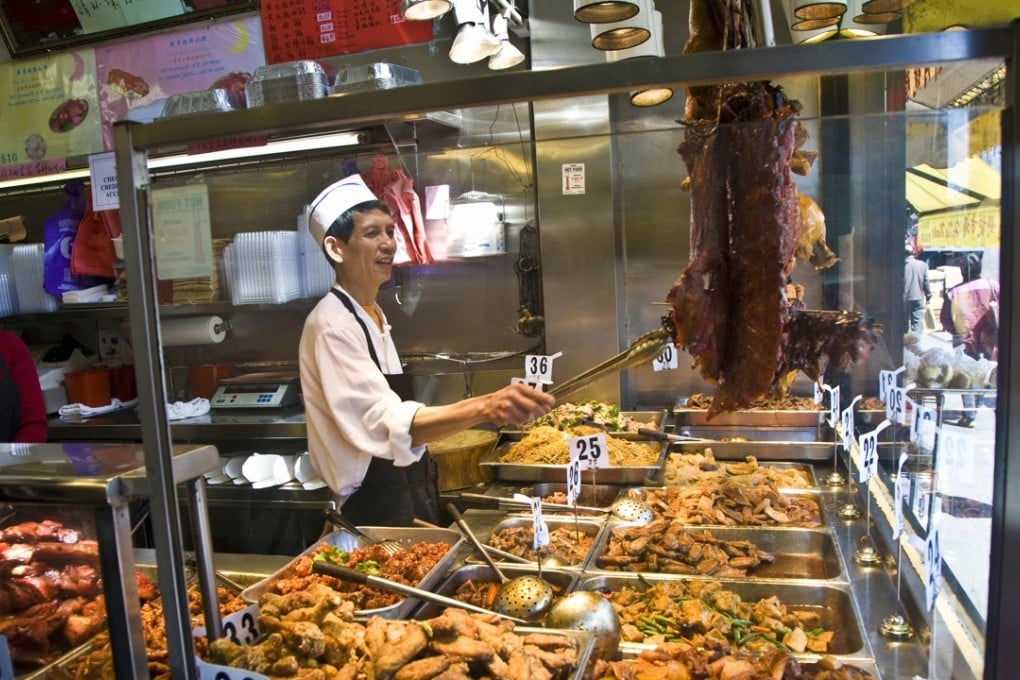The man who has eaten at more than 7,300 Chinese restaurants, but can’t use chopsticks and doesn’t care for food
David R. Chan’s love of lists and determination never to eat at the same place twice has seen him become an accidental expert on Chinese-American history. Just don’t call him a foodie

David R. Chan is the very embodiment of the word “unassuming” – he seems to shrink behind the restaurant table, peering out over plates of pork buns, fried tofu and steamed vegetables. Retiring he may be, but this is 70-year-old Chan in his natural environment. There is likely no American alive with more experience dining in Chinese restaurants. At last count, he had eaten at 7,392 of them in the United States alone.
Chan is, in almost every way, an unlikely Chinese culinary celebrity. He cannot use chopsticks and does not drink tea (too much caffeine). He cannot speak Chinese. He adheres strictly to a lifelong low-sugar, low-cholesterol diet. He does not like spicy food. He does not, in fact, care much for food at all. Chan is adamant that he is not a foodie. His now-famous list – the spreadsheet of Chinese restaurants he has been keeping for almost four decades – does not even mention what he orders at the establishments he visits.
For Chan, the thousands of eateries where he has been served over the years do not appeal to him as a diner but as an accountant.
“This is just another Excel spreadsheet,” he says. “I was always into lists.” Chan is also a consummate collector. “I’ve collected stamps, went through coins, went through records, baseball cards.”
But, with American-Chinese restaurants, he might have bitten off more than he can chew.
The US is experiencing a boom in Chinese dining, with restaurants opening at a blistering pace, and this is certainly true in the Los Angeles area, where Chan has lived all his life. And Chan, in his own quiet way, loves a challenge. What’s more, thanks to his having recently retired from his job as a certified public accountant and lawyer, he has plenty of time to devote to eating.
While he may present himself as a “numbers guy”, Chan is, above all else, a historian. Awarded a bachelors in economics, a masters in business administration, and a law degree from the University of California, Los Angeles, it was his experience in the school’s first ethnic studies course on Chinese Americans that made the biggest impression.